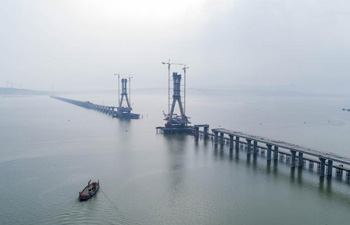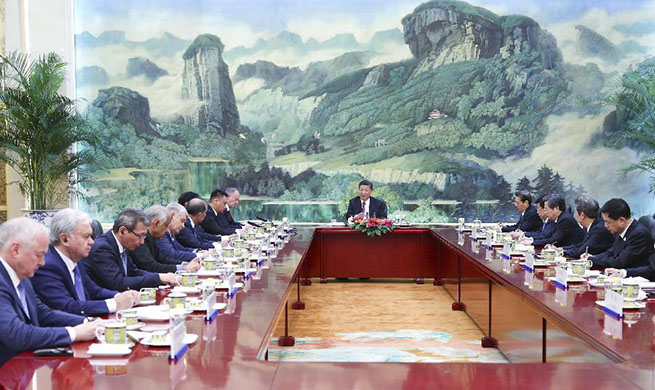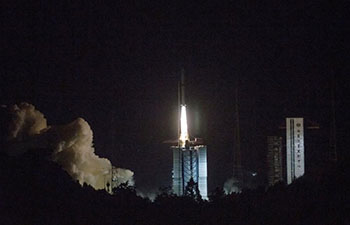ST. PETERSBURG, Russia, May 23 (Xinhua) -- More and more Russians have a positive attitude toward China because, under Western sanctions, they see the great potential of the economic partnership between the two countries, experts said.
Winning 33 percent of support, China topped a list of countries Russians view as the most necessary and valuable partner, according to a recent survey conducted by Russian polling institute Public Opinion Foundation.
Nearly half of the respondents said cooperation with China is now the most important for the Russian economy.
"In general, of course, there is a positive trend in the attitude of ordinary Russians toward China," said Alexei Maslov, head of the Asian Studies Department at the Russian Higher School of Economics, National Research University.
This is reflected not only in polls but also in Russians' growing interest in the Chinese culture, the Chinese language and joint business operations, he said.
Beneficial economic and trade cooperation with China has particularly enhanced the ordinary Russians' positive impression of China as they believe China can be a large buyer of Russian agricultural and energy products as well as a co-investor in major infrastructure projects in Russia.
"Therefore, China is perceived not as an assistant to overcome economic difficulties but as the most reliable and reasonable business partner," Maslov said.
In his view, different regions in Russia can benefit differently from cooperation with China.
Inexpensive and high-quality Chinese construction tools and materials have become very popular in the Russian Far East.
In central Russia, producers of agricultural commodities, including grain, meat and soybeans, have already found opportunities to increase exports to China, leading to the creation of jobs in these regions.
China-Russia trade increased nearly 30 percent year-on-year to 31.2 billion U.S. dollars in the first four months of 2018, China's Ministry of Commerce said.
"The two countries will take measures to optimize trade structure and cultivate new drivers for trade growth, so that the momentum can be maintained," the ministry's spokesman Gao Feng said earlier this month, expecting bilateral trade to exceed 100 billion U.S. dollars in 2018.
Sergei Uyanayev, deputy director of the Far Eastern Studies Institute at the Russian Academy of Sciences, shared the optimism on the Chinese side.
Russia's economic recovery and China's economic structural reform will allow the two countries to lift bilateral trade in the foreseeable future, he said.
He noted major projects Russia and China are jointly working on, including the exploitation of Yamal natural gas, the creation of wide-body long-haul airliners and civilian heavy helicopters, space cooperation and the construction of transport infrastructure.
"This list can be extended," he said.
Maslov pointed out that following Western sanctions against Moscow, ordinary Russians began to realize how much the country depends on foreign trade and have started to pay attention to the importance of the partnership with China.
"Economic knowledge of China has also changed due to numerous publications, seminars and courses. Not only large- but also small- and medium-sized businesses now understand how interesting China can be if one becomes aware of the conditions and rules of interaction," he added.
According to Maslov, there is a growing amount of positive information about China in Russia, such as scientific achievements, economic development and improvement of people's livelihood.
"That is, in the eyes of Russians, China has ceased to be a 'cheap China' but a highly industrial and high-tech country," he said.

















